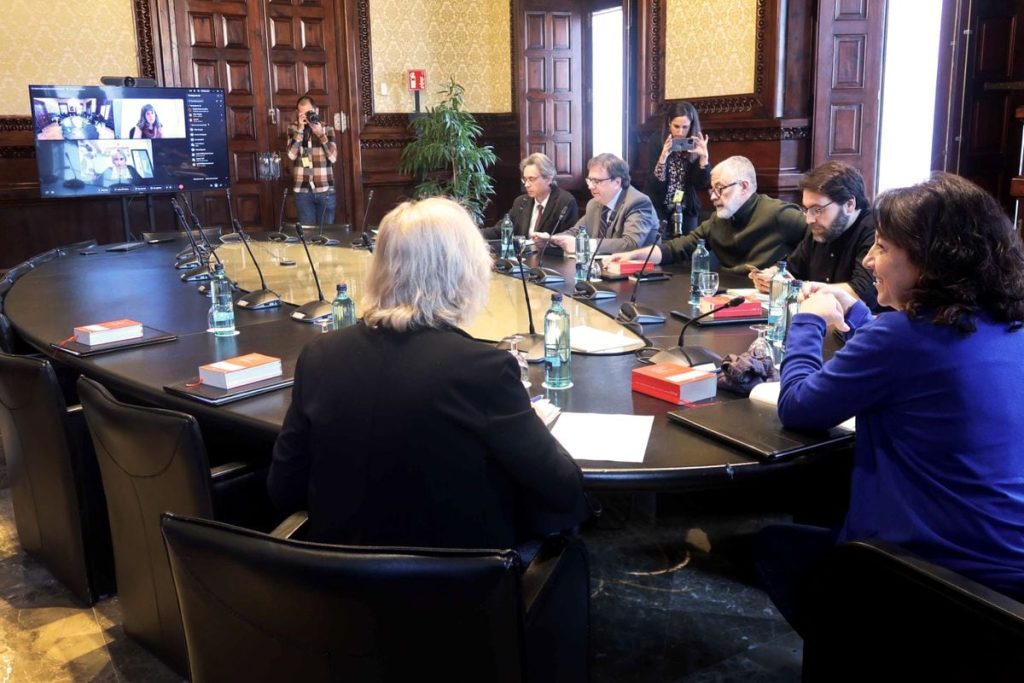The Constitutional Court has unanimously admitted the appeal filed by the government of Pedro Sanchez against the popular legislative initiative (ILP) registered in the Parliament of Catalonia last February, which called for the reactivation of a plan for independence. By admitting this appeal, the proposal is automatically suspended for an initial period of five months, in accordance with Article 161.2 of the Constitution. The Government appealed the initiative by considering that it exceeds the competences of the Catalan Parliament and seeks to alter the constitutional order. If the Constitutional Court has not ruled on the substance of the issue within five months, it will have to decide whether to extend the suspension or not. The resolution of the guarantees body was adopted unanimously, although without a formal vote. Two opposing reports were debated: one arguing for rejecting the Government’s challenge, and the other advocating for the admission of the appeal. The second report considered that the assumption of the new proposal for Catalan independence violated several constitutional court rulings.
During the debate, the precedent of the Ibarretxe plan in 2004 was mentioned, which was also referenced by the lawyer who prepared the report opposing the admission of the Government’s appeal. The Constitutional Court, however, considered in today’s plenary session that the appeal against the new independence proposal in Catalonia does have immediate effects because it involves a social mobilization, including collecting signatures, that goes against rulings issued by the court. The Court concluded that such actions violate previous judgments annulling similar attempts to alter the constitutional order. In essence, these rulings, such as those that invalidated the disconnect laws promoted in 2017 by the pro-independence forces, establish the principle that the right to self-determination cannot be exercised without a prior constitutional reform.
The Catalonia Parliament’s Bureau admitted the popular legislative initiative on February 20, with the support of Junts and CUP, the abstention of ERC, and the opposition of PSC. This decision was made despite warnings from the Parliament’s lawyers that the initiative exceeded the autonomy competences. The Constitutional Court’s resolution briefly reports the decision to admit the Government’s challenge to the agreement of the Catalonia Parliament’s Bureau from February 20, 2024, regarding the “Popular legislative initiative named ‘Proposal of Law for the Declaration of Independence of Catalonia’.” The Court has also forwarded the demand to the Catalonia Parliament for submission of documents and arguments, while applying Article 161.2 of the Constitution, which mandates the automatic suspension of any initiative challenged by the Government.
The spokesperson for the Catalan government, Patricia Plaja, criticized the central government for resorting to judicial means to prevent discussion of sensitive topics. She expressed disappointment that the Government has not learned from past experiences. The move to challenge the independence proposal using legal avenues has been seen as an attempt to stifle discussions that are uncomfortable or undesirable for the central government. This decision has further strained the relationship between the central government and the Catalan authorities, indicating ongoing tensions over the issue of independence. The suspension of the initiative has led to a pause in the momentum towards independence within Catalonia, raising concerns about the future path of the region’s political development.


